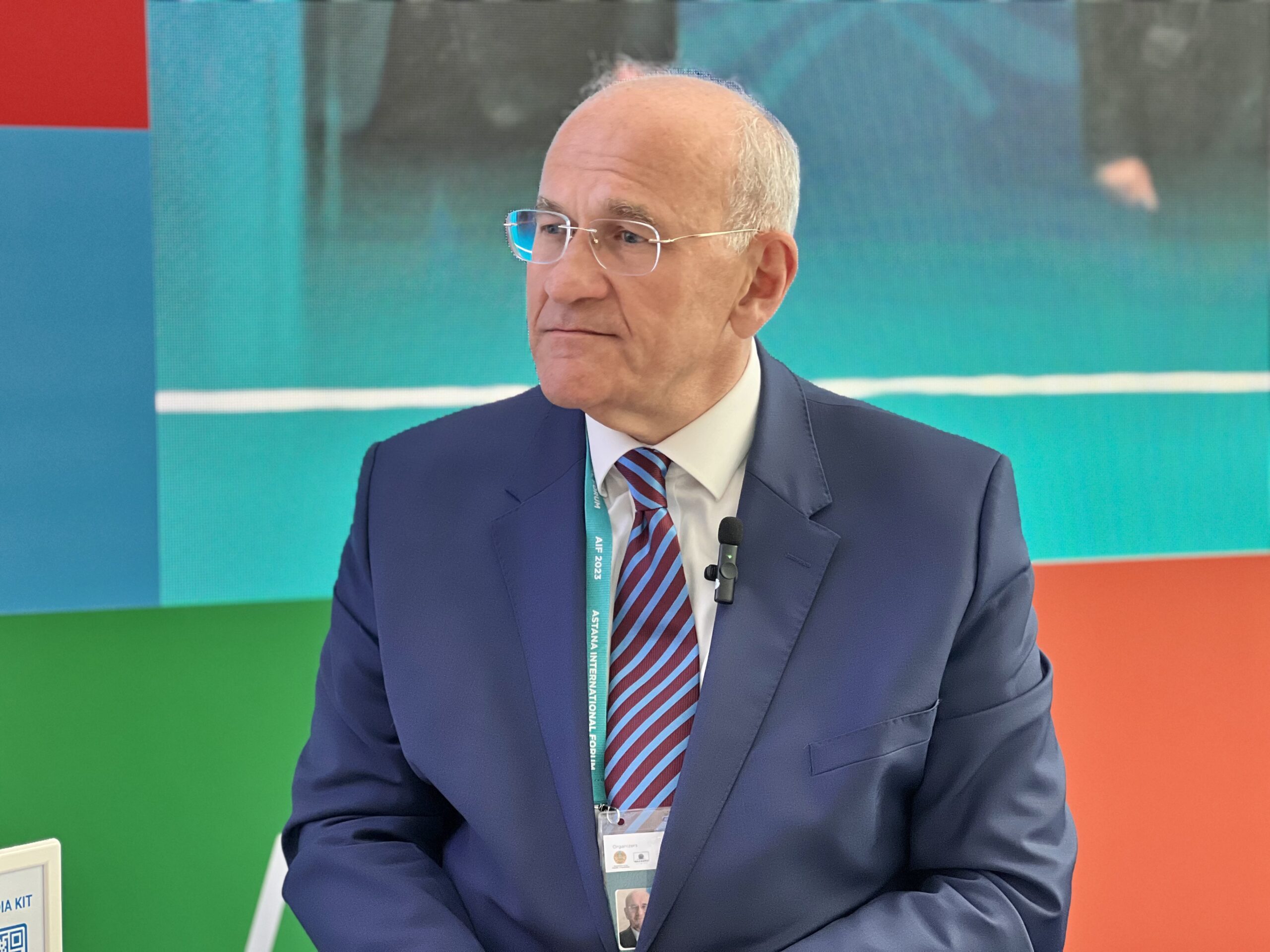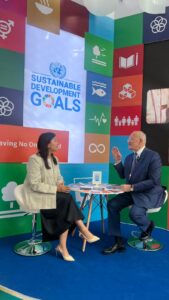ASTANA – The significance of embracing a multilateral mindset is growing, yet recommitting to it through a crisis is a luxury the world cannot afford, said David Chikvaidze, Chef de Cabinet to the Director-General of the United Nations Office at Geneva (UNOG), in an interview with The Astana Times.

David Chikvaidze, Chef de Cabinet to the Director-General of the United Nations Office at Geneva (UNOG). Photo credit: The Astana Times.
There are two interpretations of multilateralism, according to Chikvaidze. The first pertains to its physical representation, such as the UN, the Organization for Security and Cooperation in Europe, and other similar organizations. These structures themselves, he noted, are not fundamentally flawed and can be improved with adjustments if necessary.
However, the primary issue lies with the concept and mentality of multilateralism. The problem lies in member states abandoning multilateralism as an approach.
“The main problem is with multilateralism as a concept and mindset. It’s the member states who have forsaken multilateralism as an approach. This is not the first time in history. Humankind has forgotten about multilateralism 500-600 years ago. They would come back to the realization that they can’t continue with the Hundred Year’s War, with the Napoleonic wars and the First World War. They have to get together, discuss, agree, give and take. (…) The difference between multilateralism being on the side of the road today, and let’s say back in 1815 or 1814, is that today, we no longer can afford to be brought back to the multilateral mindset through a crisis. Because if we actually get into a real crisis, it might be our last. That’s where the rub is,” said Chikvaidze, who has worked over 36 years in the foreign service, government and international civil service, and 28 of these at the UN.

The Astana Times senior editor Assel Satubaldina and David Chikvaidze during the interview on the sidelines of the Astana International Forum. Photo credit: The Astana Times
The diplomat visited the Kazakh capital to attend the Astana International Forum on June 8-9. He was present at the plenary session, hearing addresses from President Kassym-Jomart Tokayev, Kyrgyz President Sadyr Japarov, Chairwoman of the Presidency of Bosnia and Herzegovina Željka Cvijanović, Uzbek Prime Minister Abdulla Aripov, Managing Director of the International Monetary Fund Kristalina Georgieva, United Nations Educational, Scientific and Cultural Organization (UNESCO) Director-General Audrey Azoulay, and Secretary-General of the Organization for Security and Co-operation in Europe (OSCE) Helga Maria Schmid.
Crises are looming across the world, with Afghanistan, Syria, and Sudan, just to name a few. Yet, real action is lacking.
Chikvaidze, originally from Georgia, highlighted that nations, regardless of their size, consistently face a dilemma between pursuing their individual interests and the potential benefits of collaborating with others to create shared value.
“Therein lies the conundrum for every country. And the countries of the Central Asian region are no different. The difference here is that, like some other regions, you are sandwiched between East, West, North, and South, and every side, if it’s not problematic, it is so big and so heavy that it has a bearing on the well-being and the future of the region together and each country. Obviously, this should give an impetus to closer cooperation within the region so that the region may be strengthened and
present itself as a region with which then it’s one thing to have dealings with one country it’s a different thing to deal with five countries that are cohesive,” he said.
Chikvaidze said President Tokayev’s speech was a “tour de force address.”
“Actually, if you look at his address, it is a set agenda for the next conference. He touched on everything that is important and needs to be discussed with regard to the United Nations,” said Chikvaidze, who served in different senior positions within the UN.
In his address, President Tokayev emphasized the need for reforms in the composition of the UN Security Council, saying that it no longer accurately represents the current global landscape. This sentiment was echoed by Chikvaidze, who shared two specific anachronisms within the UN Charter while retrieving the document from his jacket—an item he carries with him at all times. Their collective concern highlights the urgent need to address outdated elements within the charter to better align it with the evolving dynamics of the international community.
“These anachronisms are the term ‘enemy states,’ which means Germany, Japan, and Italy, primarily, which is a total anachronism. They are no longer that. The other anachronism is the so-called principle of unanimity of permanent members of the Security Council. (…) It’s no longer useful because the world has changed. The five permanent members no longer need this defense mechanism. It just makes them more, shall I say, spoiled by this veto in the sense that they know that they don’t really need to put in a lot of effort to negotiate, force trade, or engage in give and take diplomacy. If they don’t like something, they’ll not do it. So it makes for a lopsided negotiating table,” he said.
The need for reforming the organization’s key decision-making body has long been the topic of debate. The UN General Assembly began its discussions in September 2022 on the need to reshape the council, to better address current global challenges.
Chikvaidze said people often say the UN has a problem, but he urged them to be more precise about what UN they are talking about.
“Unfortunately, people don’t realize, they call the UN has a problem or the UN cannot stop the bloodshed without asking themselves which UN they are talking about. Is it the UN Secretariat, the UN General Assembly, the UN system, which has the agencies and programs, or is it the Security Council? Or, more to the point, is it the five members with veto power on the Security Council?” he said.
The diplomat stressed President Tokayev “hit the nail on the head” and that there has to be political will.
“If more presidents say this and believe in this and move within the General Assembly to find a way to do this, then it can be done. There is no such thing as impossible for the human race. The human race has thought of things that at the time seemed impossible, but they are now well in the past. So it’s just a matter of will,” he said.

